Anthropology from Trinity
Christian anthropology stems from theology. That is why it is important to note that the Christian God is a Triune God: Father, Son and Holy Spirit. And it is also important to know that there exists within the Trinity, between the three persons of the Godhead, mutual glorification, submission and love. ‘God is love’, says John the Apostle (1 John 4:8; 4:16). Yet there cannot be love except for at least two persons. That is why love presupposes the existence of multiplicity—relationship.
From the perspective of mutual love within the Triune God, we must understand that, if God has created us in his image, then there must be mutual love within humanity as well. There must also be mutual glorification and mutual submission. Humanity has often reverted to the pagan conception of a god obsessed with force and domination. This is not the Christian view as is evident from Christ’s crucifixion at Calvary.
Why Trinity, why three? A binary worldview in the social sphere is often the source of conflict. This is evident when we witness the socio-political tension around us. Most people are either conservative or liberal, republican or democrat, patriot or anti-national, and so on. This ‘either-or’ existence is a sort of incompleteness, and due to this incompleteness we often miss the mark. There is no compromise in a binary machine. A proponent of the binary way would usually state: ‘You’re either with us or against us.”
This dualistic way of the world is a container of ideas that are always at odds with each other; it is a recipe for conflict and the inevitable human sacrifice.
The Triune God overcomes the binary worldview. God’s reign, through the relationship within the Godhead, allows us to achieve a perfect harmony between the one and the many. It is as St. John of Damascus wrote:
The persons [of the Trinity] are made one not so as to commingle, but so as to cleave to each other, and they have their being in each other without any coalescence or commingling… the Godhead is undivided; and it is just like three suns cleaving to each other without separation, and giving out light mingled and conjoined into one.
Indeed, Christ prays to the Father:
“My prayer is not for them alone. I pray also for those who will believe in me through their message, that all of them may be one, Father, just as you are in me and I am in you. May they also be in us so that the world may believe that you have sent me. I have given them the glory that you gave me, that they may be one as we are one—I in them and you in me—so that they may be brought to complete unity. Then the world will know that you sent me and have loved them even as you have loved me.”
~John 17:20-23
By imitating the Triune relationship of the Godhead, one of mutual glorification and submission, we bring about God’s kingdom on Earth. We bring God’s kingdom not as the world brings, i.e. through equal or more amounts of evil, but through the positive mimesis of the Triune Godhead. The world brings peace through the pagan practice of casting out the other. It is not so with God’s people.
“Peace I leave with you; my peace I give you. I do not give to you as the world gives. Do not let your hearts be troubled and do not be afraid.”
~John 14:27
Our embracing of this postive mimesis of the Triune Godhead would require not only courage but self-sacrifice. The fullness of the Godhead is revealed in Christ, Paul says (Col. 2:9). Christ gave himself up to a horrific death on the cross and made known to us what God intends for us. It isn’t an easy step to take, but love as expressed by God, though difficult, always endures.

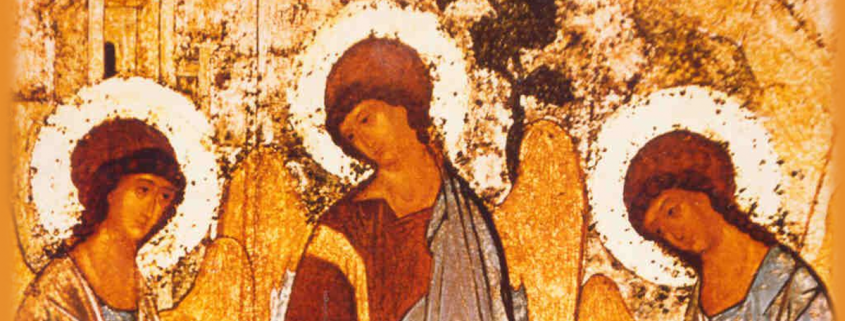

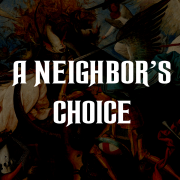
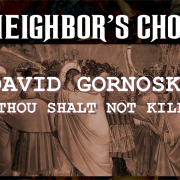


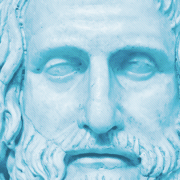
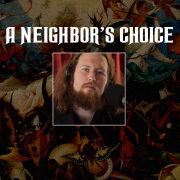

Leave a Reply
Want to join the discussion?Feel free to contribute!